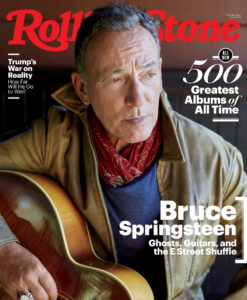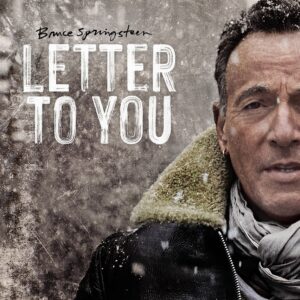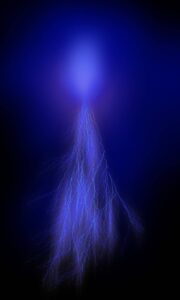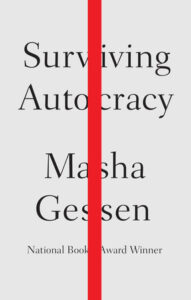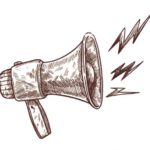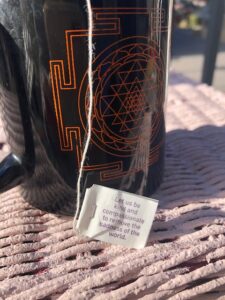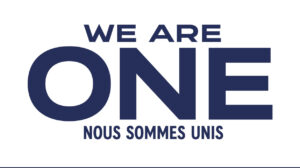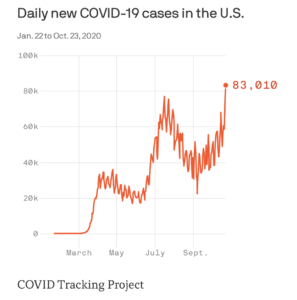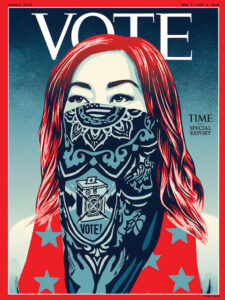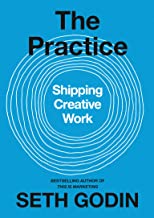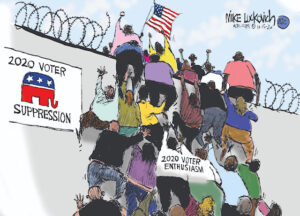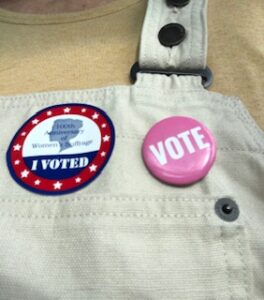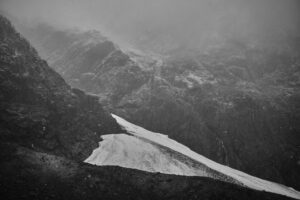A little Halloween ditty from Allen Ginsberg, Paul McCartney, and Philip Glass. First published in 1995, and recorded in 1996. Ginsberg died one year later.
‘The Ballad of the Skeletons”
The American political climate from which it arose bears a striking resemblance to the one we’re living in today. “I started it,” Ginsberg told Harvey Kubernik of The Los Angeles Times in 1996, “because of all that inflated bull about the family values, the ‘contract with America,’ Newt Gingrich and all the loudmouth stuff on talk radio, and Rush Limbaugh and all those other guys. It seemed obnoxious and stupid and kind of sub-contradictory, so I figured I’d write a poem to knock it out of the ring.”
[Open Culture]









H A P P Y
H
A
L
L
O
W
E
E
N
Be safe.
Vote.
Watching from the other side.
‘It is coming into election week in the U.S. I am here, on this side of the Atlantic, looking at the other side of that ocean. So much has happened in the sea between us: ships shipping enslaved people, hungry people, desperate people; ships going to a land they called uninhabited from a Europe that prefers to forget its history. As I think about how reparations and justice can be enacted, I’m reminded of an old Breton prayer: God help me, because the sea is so big and my boat is so small.’

Beir bua,
Pádraig Ó Tuama
[Beir bua: ‘take a victory, and a blessing.’]
Pádraig Ó Tuama is leader of the Corrymeela Community, a poet, theologian and mediator. He has worked in conflict resolution in Ireland, Africa and the Middle East.
Because, well, it’s Bruce.
October 30, 2020Rolling Stone/By Brian Hiatt
Were it not for the intervention of a once-in-a-century global catastrophe, Springsteen — who turned 71 on September 23rd — would right now be preparing for that world tour with the E Street Band. It was supposed to start, he reveals, in the spring of 2021. Instead, he says, “My antenna tells me, at best, 2022. And I would consider the concert industry lucky if it happens then.… I’m going to consider myself lucky if I lose just a year of touring life. Once you hit 70, there’s a finite amount of tours and a finite amount of years that you have. And so you lose one or two, that’s not so great. Particularly because I feel the band is capable of playing at the very, very, very top, or better than, of its game right now. And I feel as vital as I’ve ever felt in my life.… It’s not being able to do something that is a fundamental life force, something I’ve lived for since I was 16 years old.”
It’s excellent. -dayle
“It’s the only album where it’s the entire band playing at one time,” says Springsteen, “with all the vocals and everything completely live.” (A few of Springsteen’s twangy guitar leads, played on a Gretsch, are among the only exceptions.)
“It was really like the old days,” says drummer Max Weinberg. “Just pure musical energy, with the hard-earned musical and professional wisdom of guys in their 70s, or close to 70.” It also happens to be the most classically, unabashedly E Street-sounding album since at least The River. It’s a late-period rebirth of sorts, and it started with thoughts of death.
Bruce: “You count the names of the missing as you count off time. Their spirit, their energy, their echo continues to resonate in the physical world.… A beautiful part of living is what we’re left by the dead.”
I’ll see the houses I lived in as a child. I’ll walk through their halls. We see all those folks in our dreams until we become a dream ourselves.
“We miss them dearly, but they’re standing right next to us.”
Brush with Bruce. Ketchum, Idaho…Chapter One. Turned my head to catch my breath. We had a brief exchange. It was a moment. And indelible.
♥ you, Bruce.
-dayle
Absorbing the holoflux.
[NASA]
From Maria Popova.
“For a moment of calibrating the correct scale and splendor of things: Nasa captures the first “sprites” – brief, bright flashes of light in the upper atmosphere – on another world, dancing their intense blue in the immense sky of Jupiter.”
Maria wants call it ‘Juno Blue.’
Dr. David Bohm’s holoflux: the flowing movement of all that is, the ground of our being, the mysterious domain in which mind, matter, and meaning are an organic whole…’folding and enfolding.’
☆
Center for Action and Contemplation/Fr Richard Rohr
Glimpsing a new world.
Thomas Keating’s final message was the following:
Dear friends: In the universe, an extraordinary moment of civilization seems to be overtaking us. . . . It’s a time of enormous expectancy and possibility.
We are called to start—not with the old world contracts, now that we know that they are all lies—but [with] what we know as the truth. . . . So I call upon the nations to consider this as a possibility: that we should begin a new world with one that actually exists. This is the moment to manifest this world, by showing loving concern for poverty, loving appreciation for the needs of the world, and opportunities for accelerated development. We need to find ways to make these really happen. I make this humble suggestion, that now arms-making is of no significance in the world. It hinders its progress.
This will allow and offer the world the marvelous gift of beginning, [of] creating, of trusting each other, of forgiving each other, and of showing compassion, care for the poor, and putting all our trust in the God of heaven and earth. I leave this hope in your hands and hearts, coming as a real inspiration from the heart of God. What does [God] care about who has this or other lands, when the power to begin with the truest history is coming from religion as expression of the Source that has been realized for centuries? Buddhism, Hinduism, Sufism, Indigenous, and Christianity—all religions—oneness is their nature. Amen. [1]
Richard: In this injunction to the world, Father Thomas Keating says what he has been given to know. The only path forward for the survival of our species and perhaps even our planet is a path of nonviolence, of contemplation and action prioritizing justice and solidarity, an affirmation of Oneness and the interconnectedness of all things, which science confirms, and spirituality has always known on its deepest level.
I think the real purpose of the spiritual journey is to expand people’s ability to do good by liberating them. This is what Jesus did, after all—free people from their pain, their sin, their “uncleanness,” and even their deaths. Then he sent them back to their families and to society to live in relationship and live lives of freedom and wholeness. As a devoted student of Jesus and lover of God, Thomas Keating did the same through the gift of Centering Prayer; he helped people connect to an inner stillness and experience of God that liberated them from egoic strongholds—so they could become free and whole. His final words help us imagine the possibilities for ourselves and our world.
[1] Thomas Keating, Fr. Thomas Keating’s Last Oracle (Contemplative Network: 2020), transcription (October 2018), YouTube video.
Constitution crisis?
October 29, 2020We could be close. It’s important for us to understand how a crisis could unfold and what we can do.
This TED Talk was recorded three days ago with CNN political Commentator Van Jones.
“If the 2020 US presidential election is close, the race could drag on in the courts and halls of Congress long after ballots are cast, says lawyer and political commentator Van Jones. Explaining why the customary concession speech is one of the most important safeguards for democracy, Jones exposes shocking legal loopholes that could enable a candidate to grab power even if they lose both the popular vote and the electoral college — and shares what ordinary citizens can do if there’s no peaceful transfer of power.”
[16:00]
It is truly remarkable how are elections are foundational to norms and behaviors, not necessarily names in the Constitution. A very real concern could be the ‘private armed militia’ Jones draws reference to. To learn more about a growing militia group featured on a recent episode of Fresh Air, follow this link:
https://www.npr.org/2020/10/26/927796915/pro-trump-militias-election-day-beyond
‘Atlantic’ writer Mike Giglio profiles the Oath Keepers, a pro-Trump militia group, in a new article. They have recruited thousands of police, soldiers and veterans. We talk about what they might do on Election Day and after. “We, as Americans, are so comfortable with the idea of sending people out into foreign wars. And now [these militia groups are] starting to look at America itself as a part of that battle space.” Giglio also shares insights from covering civil wars overseas.
[Dr. Strangelove]
Another podcast I listened to recently…Radiolab…explains Constitutional crisis following ‘what if’ scenarios with a group of experts and political operatives who play these types of ‘war games.’
There’s plenty of speculation about what Donald Trump might do in the wake of the election. Would he dispute the results if he loses? Would he simply refuse to leave office, or even try to use the military to maintain control? Last summer, Rosa Brooks got together a team of experts and political operatives from both sides of the aisle to ask a slightly different question. Rather than arguing about whether he’d do those things, they dug into what exactly would happen if he did. Part war game part choose your own adventure, Rosa’s Transition Integrity Project doesn’t give us any predictions, and it isn’t a referendum on Trump. Instead, it’s a deeply illuminating stress test on our laws, our institutions, and on the commitment to democracy written into the constitution.
This episode was reported by Bethel Habte, with help from Tracie Hunte, and produced by Bethel Habte. Jeremy Bloom provided original music.
[41:00]
https://www.wnycstudios.org/podcasts/radiolab/articles/what-if
The 19th
Voting during the 19th Amendment’s centennial wasn’t supposed to be this way
“The moment was supposed to be a bright spot in an otherwise chaotic and uncertain year,” wrote Errin Haines, The 19th’s editor-at-large. “Instead, it would leave me feeling that chaos and uncertainty more acutely than ever.”
We’re the only newsroom dedicated to writing about gender, politics and policy.
As the pandemic rages and voter enthusiasm is at a record high, Americans are being urged to make a plan to cast their ballot in the most consequential election many of us will ever live through.
My plan was to vote early, something I did frequently in my native Georgia before moving to Philadelphia five years ago. Because of the pandemic, Pennsylvania allowed voting before Election Day for the first time this year.
[…]
On Monday, I emerged exhausted, demoralized and enraged after four hours of standing in line.
How, in the city where the Constitution was written and signed, where we celebrate the founding principles of democracy, is this happening? I was angry not for myself, but on behalf of the Philadelphians who could be disenfranchised this election. I am someone who had four hours to stand in line; there are too many who live in this city who do not.
It wasn’t supposed to be this way.
I wondered how many people passed by, saw the line, and kept walking or driving.”
Full read:
https://19thnews.org/2020/10/voting-long-lines-philadelphia-19th-amendment-centennial/
#MustRead from Anand
Last exit before autocracy
A conversation with Masha Gessen on how to prevent “autocratic breakthrough,” why Russiagate was a “crutch” for the left, and what really happened in that New Yorker election s(t)imulation Zoom
A reelected Donald Trump, abetted by a 6-3 Supreme Court, is truly a terrifying prospect — very possibly the end of the American republic in any real sense. But we are not there yet. Where we are, in fact, is in the liminal space where it is still possible to achieve a different future.
This looming election may well be the last exit before autocracy.
That was one of the things I carried away from my conversation with the brilliant Masha Gessen, whose wisdom I’m so happy to be sharing with you today. This era has revealed its share of charlatans and criminals and fools. But it has also revealed genuine heroes — including intellectual ones. One of mine is Masha.
Masha is a journalist and writer and thinker who spent the first part of their career in Russia, writing about science, democracy, autocracy, and disease. Then they made a home in America, where it turned out that some understanding of science, democracy, autocracy, and disease would prove very handy.
Masha was made for this moment. To be clear, given their interests, you actually never want to be living in a time and place that Masha was made for, but here we are.
The question is what happens next. If he, God willing, wins, I think that in some ways Biden can be a transformative president, because I think that there’s a grand ambition there, that’s become very clear, to invest in infrastructure, to create a new welfare state, to bring the country together in some really, I think, beautiful ways.
What gives me hope is distinct from the question of whether I’m optimistic. I can be incredibly pessimistic, but hope is a necessity of survival and a moral imperative. I hope because I have to, because a better future is possible. The foundational requirement for it is hope.
Full Q&A
https://the.ink/p/how-to-block-an-autocratic-breakthrough
Masha:
I use the word autocracy intentionally, instead of authoritarianism, for two reasons. One is because I’ve spent so much of my life writing about totalitarianism that, in that context, authoritarianism is something distinct from totalitarianism. Authoritarianism is a kind of regime in which basically the ruler wants people to go home and tend to their private lives while they run the country. So nothing is political under authoritarianism; everything becomes private. Politics as such disappears.
Under totalitarianism, it’s the opposite. The totalitarian leader wants people out in the public square at all times, demonstrating their support for him. Under totalitarianism, nothing is private; everything is political. It’s the private that disappears.
So let’s stick with autocracy. Where are we in the autocratic arc? I hope we’re at the stage of the autocratic attempt. If there’s a spectacular failure of this election, not a failure as in Donald Trump wins, but a failure as in, he doesn’t leave office because he can abuse the courts, abuse the power of the courts and secure being able not to leave office that way, because he can create enough chaos to throw election results into enough doubt that he doesn’t leave office — if there is an actual engineered failure of the election, then we have already passed the point of no return, the point of autocratic breakthrough. So I don’t actually know the answer. I very much hope that we’re at the point of an autocratic attempt, and that attempt will be reversed because we vote him out of office.
Brooklyn has a plan to fix democracy
The borough’s proposal for a 28th Amendment to the U.S. Constitution
The 28th Amendment — a proposal
Whereas the government of the United States should represent all of the people of the United States equally,
ction 1. The Electoral College shall be abolished and the President selected by popular vote; Senate membership shall be reallocated to reflect more accurately the distribution of the national population, with a minimum of one seat per state; Election Day shall be a national holiday; elections shall be publicly financed. All citizens of the United States, including those living in its territories and the District of Columbia, shall have the same electoral rights and representation as residents of a State; all citizens of voting age shall have the unencumbered right to vote in federal, state, and local elections. Congress shall have the power and obligation to enforce these provisions by appropriate legislation.
Section 2. In recognition of the inherent dignity of all persons, Congress shall have the power and obligation to enact appropriate legislation to secure all rights guaranteed in the Universal Declaration of Human Rights, including the right to education, healthcare, housing, employment, food security, and a clean and healthy environment.
—
Seth Godin
The successful scientist
The scientific method is the most powerful invention humans have ever created. It’s not just for people in white coats and in labs. The scientific method has changed what we wear, what we eat, the health of our families, the way we earn a living–the world as we know it is a result of a simple process of hypothesis, testing and explanation.
Unfortunately, school and other systems in our world focus on just one or two of the elements necessary to do it well.
- Know the rules, maxims and outcomes that came before. Do the reading, score well on the test.
- Understand the thinking behind these rules, so you can dive deeper and either change the rules or expand on them.
- Do tests that others haven’t thought of or that people don’t think will work. Intentionally create falsifiable hypotheses, knowing that you might be wrong, and then go test them.
- Publish your results so that others can examine your work and improve it. Show your work. Invite correction and improvement.
- Explain what you did clearly so that it becomes part of the canon, so it can be used by others, until it’s replaced by something even more useful.
There are very few contentious arguments in our world today that couldn’t be more quickly resolved if all involved were willing to act in good faith and work their way through the steps together.
Because if you seek to lead or to change minds, if you’re working for better, then you’re a scientist.
Honoring Jamal & The First Amendment
October 27, 2020Become a voice for freedom.
https://www.freedom-first.org/freedom-pledge#Pledge
Jamal Ahmad Khashoggi جمال أحمد خاشقجي,
[1958-2018]
Jamal was a Saudi Arabian dissident, author, and columnist for The Washington Post and a general manager and editor-in-chief of Al-Arab News Channel who was assassinate at the Saudi consulate in Istanbul on Octocter 2, 2018 by agents of the Saudi government. Jamal also served as editor for the Saudi Arabian newspaper ‘Wal Watan, turning it into a platform for Saudi progressives. [wikipedia]
Crawl into the Promised Land
New from the fierce Rosanne Cash.
“Crawl into the Promised Land” – a song that bellows in the fear-contracted chamber of the present as a mighty antidote to the collective selective memory we mistake for history and a clarion call for a more livable future.” -Maria Popova
Statement of Shared Purpose
For journalists and consumers of news and information.
Principles of Journalism
In 1997, an organization then administered by PEJ, the Committee of Concerned Journalists, began a national conversation among citizens and news people to identify and clarify the principles that underlie journalism. After four years of research, including 20 public forums around the country, a reading of journalism history, a national survey of journalists, and more, the group released a Statement of Shared Purpose that identified nine principles. These became the basis for The Elements of Journalism, the book by PEJ Director Tom Rosenstiel and CCJ Chairman and PEJ Senior Counselor Bill Kovach. Here are those principles, as outlined in the original Statement of Shared Purpose.
A STATEMENT OF PURPOSE
After extended examination by journalists themselves of the character of journalism at the end of the twentieth century, we offer this common understanding of what defines our work. The central purpose of journalism is to provide citizens with accurate and reliable information they need to function in a free society.
This encompasses myriad roles helping define community, creating common language and common knowledge, identifying a community’s goals, heroes and villains, and pushing people beyond complacency. This purpose also involves other requirements, such as
- being entertaining,
- serving as watchdog,
- offering voice to the voiceless.
Over time, journalists have developed nine core principles to meet the task. They comprise what might be described as the theory of journalism.
1. Journalism’s first obligation is to the truth
Democracy depends on citizens having reliable, accurate facts put in a meaningful context. Journalism does not pursue truth in an absolute or philosophical sense, but it can and must pursue it in a practical sense. This “journalistic truth” is a process that begins with the professional discipline of assembling and verifying facts. Then journalists try to convey a fair and reliable account of their meaning, valid for now, subject to further investigation. Journalists should be as transparentas possible about sources and methods, so audiences can make their own assessment of the information. Even in a world of expanding voices, accuracy is the foundation upon which everything else is built: context, interpretation, comment, criticism, analysis and debate. The truth, over time, emerges from this forum. As citizens encounter an ever-greater flow of data, they have more need not less for identifiable sources dedicated to verifying that information and putting it in context.
2. Its first loyalty is to citizens
While news organizations answer to many constituencies, including advertisers and shareholders, the journalists in those organizations must maintain allegiance to citizens and the larger public interest above any other if they are to provide the news without fear or favor. This commitment to citizens first is the basis of a news organization’s credibility; the implied covenant that tells the audience the coverage is not slanted for friends or advertisers. Commitment to citizens also means journalism should present a representative picture of all constituent groups in society. Ignoring certain citizens has the effect of disenfranchising them. The theory underlying the modern news industry has been the belief that credibility builds a broad and loyal audience, and that economic success follows in turn. In that regard, the business people in a news organization also must nurture–not exploit their allegiance to the audience ahead of other considerations.
3. Its essence is a discipline of verification
[BEWARE: CORPORATE OWNED MEDIA]

Journalists rely on a professional discipline for verifying information. When the concept of objectivity originally evolved, it did not imply that journalists are free of bias. It called, rather, for a consistent method of testing information – a transparent approach to evidence – precisely so that personal and cultural biases would not undermine the accuracy of their work. The method is objective; not the journalist. Seeking out multiple witnesses, disclosing as much as possible about sources, or asking various sides for comment, all signal such standards. This discipline of verification is what separates journalism from other modes of communication, such as propaganda, fiction or entertainment. However, the need for professional method is not always fully recognized or refined. While journalism has developed various techniques for determining facts, for instance, it has done less to develop a system for testing the reliability of journalistic interpretation.
4. Its practitioners must maintain an independence from those they cover
Independence is an underlying requirement of journalism, a cornerstone of its reliability. Independence of spirit and mind,rather than neutrality, is the principle journalists must keep in focus. While editorialists and commentators are not neutral, the source of their credibility is still their accuracy, intellectual fairness and ability to inform, not their devotion to a certain group or outcome. In our independence, however, we must avoid any tendency to stray into arrogance, elitism, isolation or nihilism.
5. It must serve as an independent monitor of power
Journalism has an unusual capacity to serve as watchdog over those whose power and position most affect citizens. The Founders recognized this to be a rampart against despotism when they ensured an independent press; courts have affirmed it; citizens rely on it. As journalists, we have an obligation to protect this watchdog freedom by not demeaning it in frivolous use or exploiting it for commercial gain.
No bueno.
October 23, 2020The U.S. confirmed at least 83,010 coronavirus cases on Friday, the country’s highest daily total since the pandemic started, according to data from the COVID Tracking Project.
Friday, October 23rd, 2020
3-W’s:
- wear a mask
- wash your hands
- watch your space
Please. We must. So many people are going to die, as well as long-term health issues, like strokes, heart attacks, other vascular related issues. A hospital in Twin Falls, Idaho, is no longer accepting children, and COVID patients are being flows to Boise, Portland, and Seattle.
It. Is. Not. Political.
This.
Is.
A.
Health.
CRISIS.
Time.
October 22, 2020For the first time, the TIME logo on the magazine’s cover has been replaced with another word: VOTE.
This election we decide if we want to keep the America we believe in and hope for, or the America we have become. Choose wisely. Be the bridge.
The love.
October 20, 2020“Let this be the anthem that leads us to polls.”
Laurene Powell Jobs, Emerson Collective
Darkness, Sadness, Joy 
“Darkness can come in many forms, sometimes fast, sometimes creeping slowly. Ours came at warp speed and was all-encompassing when our son, Matthew, was brutally murdered 22 years ago simply for being gay.
One minute we were a family of four, the next, we were three. We were experiencing so many emotions – anger, confusion, grief and a sense of emptiness — all at once.
As time passes, light finds a way, in many ways, sometimes fast, sometimes creeping slowly. Our light was family and friends, both known and unknown. We had found a new community who loved without judgement and welcomed us with open arms.
Darkness, however, is never far away. Darkness demands your attention, but after seeing the light you can leave the darkness where it is and not embrace it.
Sadness is present every day. It is an ache, an emptiness, a loss of what you thought your life would be. Maybe sadness is a recovery from darkness; that recovery may well last the rest of your days. However, you can be sad and still function. Functioning is surviving your darkness and your sadness. Functioning is finding a purpose to still be present.
The next step is the joy you find from serving your purpose, from helping others in a way that speaks to your heart. Everyone is going through their own particular pain. You may not see it—they may not want to talk about it but it is there. Joy is especially welcome when sadness has been your overriding emotion.
Even joy can be interrupted by an unexpected memory – a scent, a song, even a shadow can awaken the sadness. But now you know you can survive it. You can even embrace the memories, feel the sadness and return to joy.”
Judy Shepard
Gay rights activist and mother of Matthew Shepard, who was interred at the Cathedral in 2018, 20 years after his murder that galvanized the gay rights movement
The prayer of St. Francis:
Where there is hatred, let me sow love
Where there is injury, pardon
Where there is doubt, faith
Where there is despair, hope
Where there is darkness, light
And where there is sadness, joy
Not so much seek to be consoled as to console
To be understood, as to understand
To be loved, as to love
For it is in giving that we receive
And it’s in pardoning that we are pardoned
And it’s in dying that we are born to eternal life.
The Prayer of St. Francis describes a world—and a state of being—that is often the one we strive for but rarely see. Where there is hatred, we instead find love; where there is injury, pardon. It describes an active faith, one that is shaped and reshaped and constantly striving toward perfection. – The St. Francis Project
stfrancisproject.org
We need you to ship it.
From author Seth Godin:
In this whiteboard video, Seth Godin challenges you, whatever it is you do for a living, to figure out how to do work that matters, work you’re proud of.
“This is the book I need right now. It’s an extraordinary and electrifying call to action for writers, artists and creators in every walk of life. I re-read passages and felt as if my own secret creed was being explained back to me, in words I hadn’t yet found.”
—Rosanne Cash, Grammy-winning singer-songwriter
Creative work doesn’t come with a guarantee. But there is a pattern to who succeeds and who doesn’t. And engaging in the consistent practice of its pursuit is the best way forward.
Based on the breakthrough Akimbo workshop pioneered by legendary author Seth Godin, The Practice will help you get unstuck and find the courage to make and share creative work. Godin insists that writer’s block is a myth, that consistency is far more important than authenticity, and that experiencing the imposter syndrome is a sign that you’re a well-adjusted human. Most of all, he shows you what it takes to turn your passion from a private distraction to a productive contribution, the one you’ve been seeking to share all along.
With this book as your guide, you’ll learn to dance with your fear. To take the risks worth taking. And to embrace the empathy required to make work that contributes with authenticity and joy.
Authenticity is mandatory, I think, yet, I understand their message.- dayle
26,000,000!
October 18, 2020As of Saturday, 26,000,000 of us have voted early!
Keep going. We’re doing this.
V
O
T
E
Korby Lenker.
|



